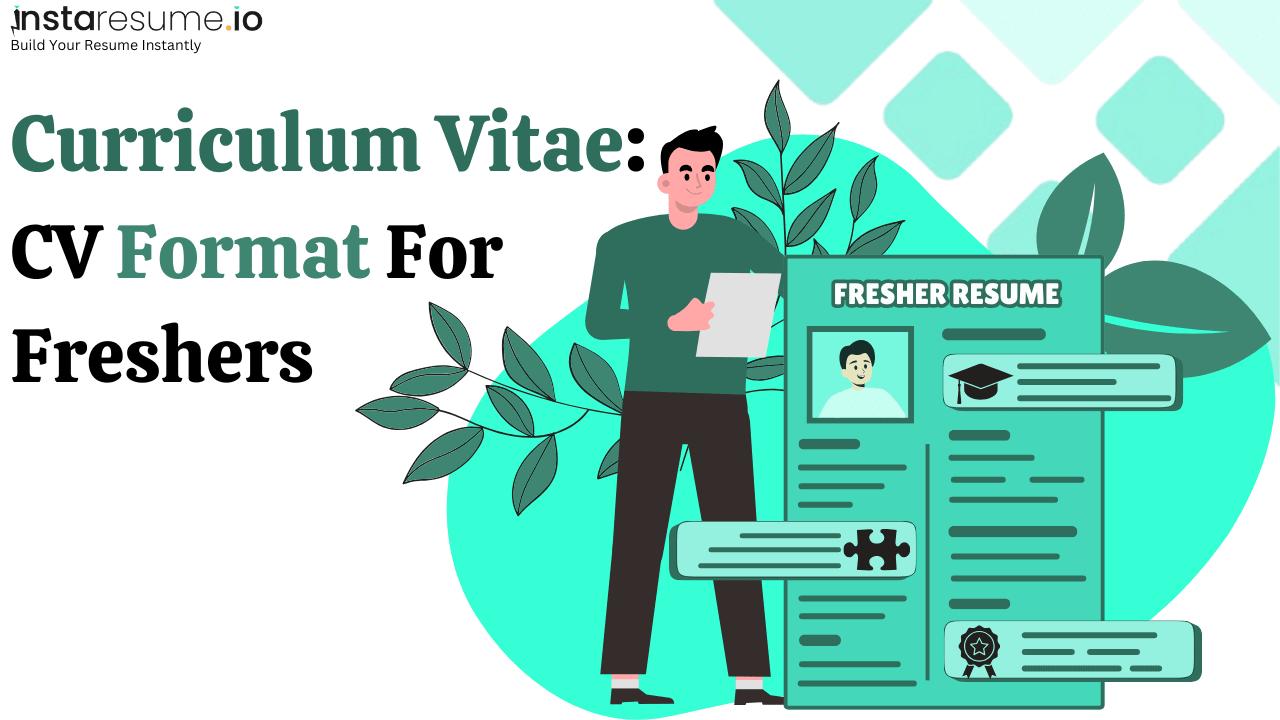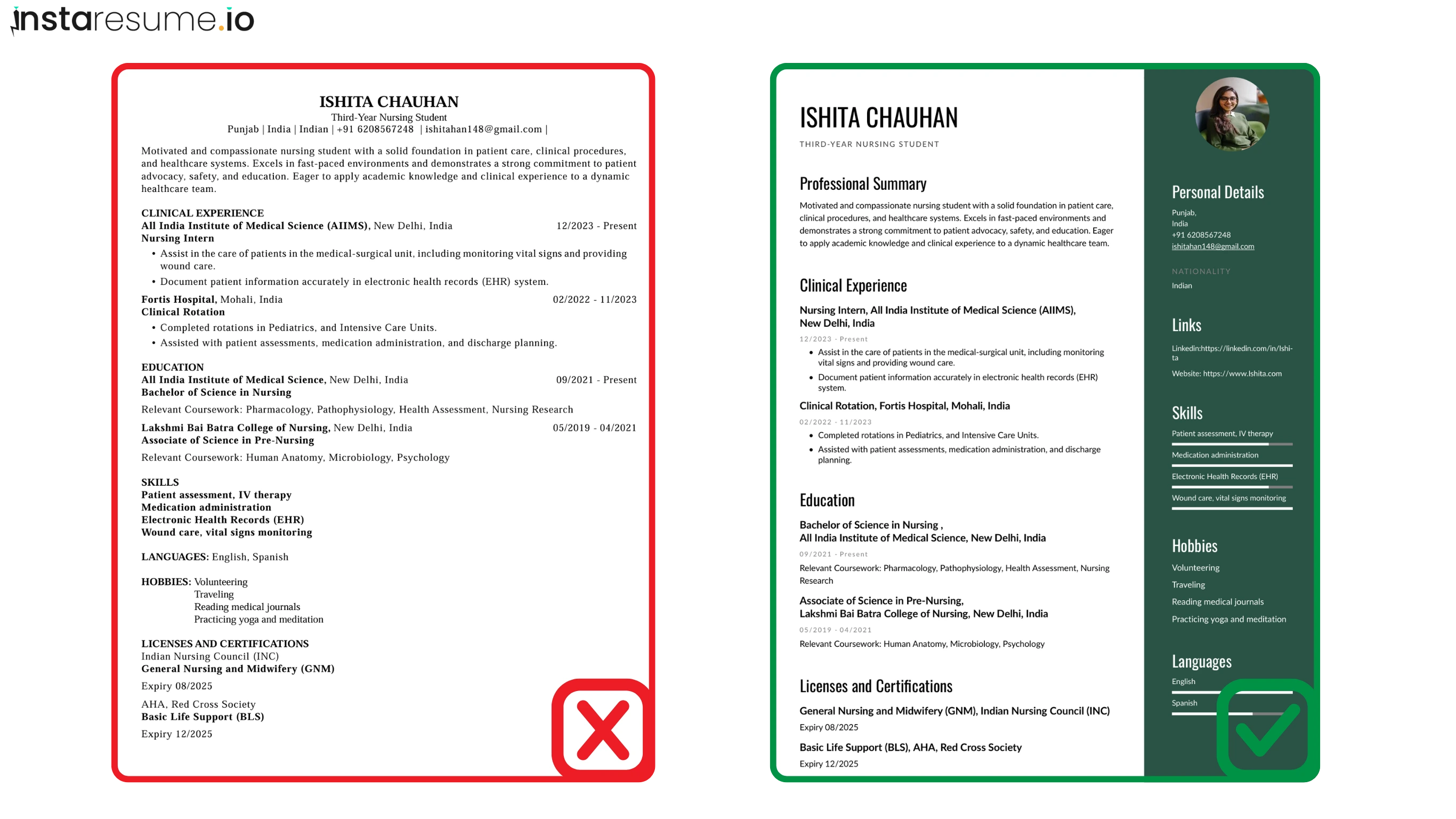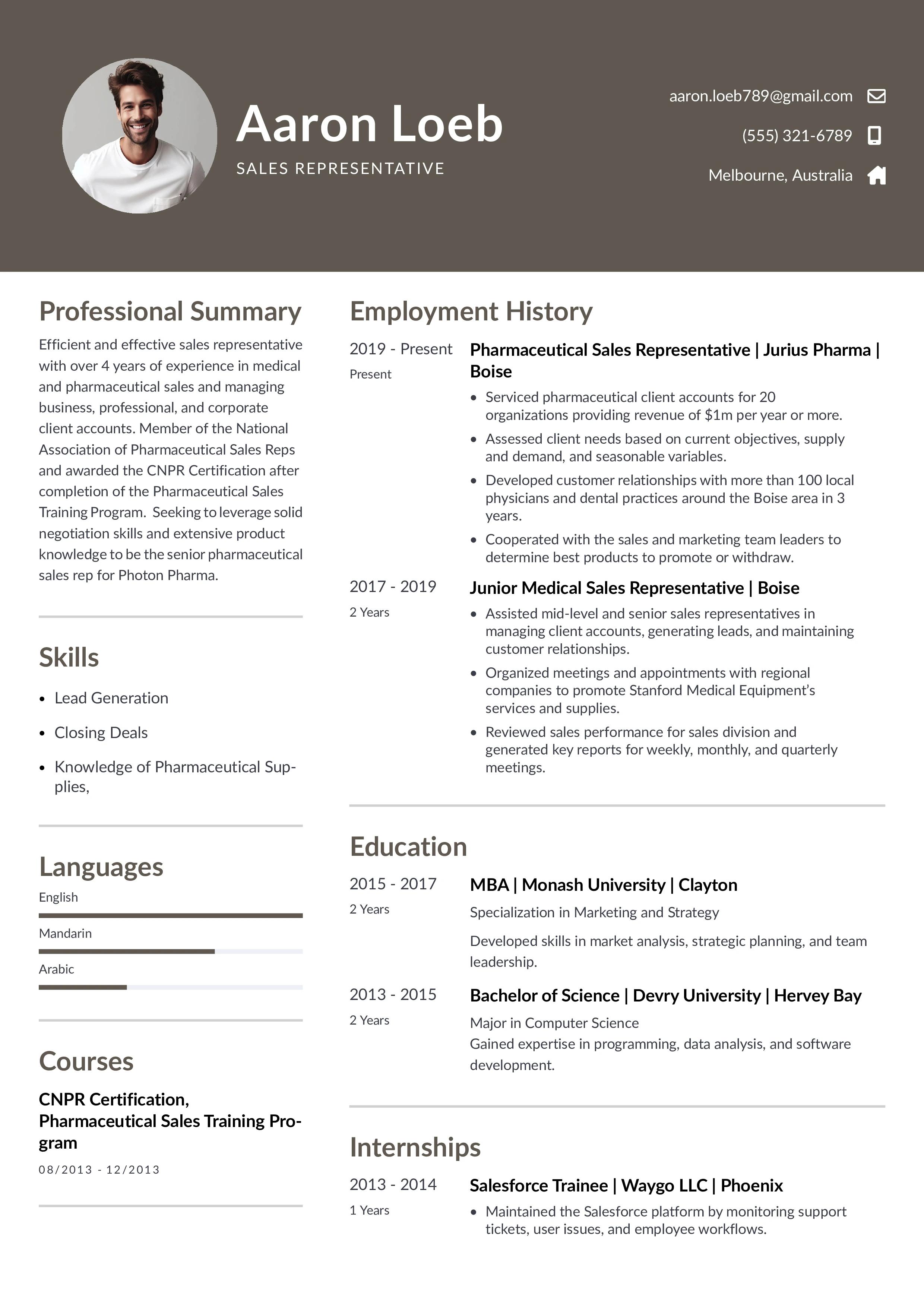CV format for freshers
Trust Score: 4.7
358 reviews

Table of Contents
Introduction
Imagine your CV as your personal brand ambassador—a dynamic tool that not only tells your story but also opens doors to exciting career opportunities. For freshers, crafting a well-structured CV is more than just listing qualifications; it’s about presenting your potential in a way that captivates employers and differentiates you from the competition.
A good CV acts as a gateway to a multitude of job opportunities. It signals your professionalism, showcases your skills, and can even set you apart in search engine results. In this blog, we’ll guide you through the best practices for creating a compelling CV that leverages structured data to stand out on the SERP with rich snippets and FAQs, ensuring your content is both discoverable and engaging. We’ll cover essential topics such as:
 The Importance of a Well-Structured CV for Freshers: Understand why a clean, organized layout is crucial in making a positive first impression.
The Importance of a Well-Structured CV for Freshers: Understand why a clean, organized layout is crucial in making a positive first impression. How a Good CV Increases Job Opportunities: Learn how tailoring your CV can boost your chances of landing interviews and securing your dream role.
How a Good CV Increases Job Opportunities: Learn how tailoring your CV can boost your chances of landing interviews and securing your dream role. Overview of the Blog Content: Discover actionable tips, unique insights, and long-tail keyword strategies to help you optimize your CV for broader searches and outshine competitors.
Overview of the Blog Content: Discover actionable tips, unique insights, and long-tail keyword strategies to help you optimize your CV for broader searches and outshine competitors.
Impressive, isn’t it?
This isn’t just a resume format for nursing freshers—it’ll work just as well for any other job.
I'll show you how to follow the right resume format for freshers, no matter the industry:
Key components to include in the best CV format for freshers
A well-structured resume typically includes the following sections:
 Header/Contact Information: Your name, professional email, phone number, and location.
Header/Contact Information: Your name, professional email, phone number, and location. Professional Summary or Objective: A brief statement outlining your career goals and what you bring to the table.
Professional Summary or Objective: A brief statement outlining your career goals and what you bring to the table. Education: Details about your academic background, including degrees, certifications, and relevant coursework.
Education: Details about your academic background, including degrees, certifications, and relevant coursework. Skills: A list of both technical and soft skills tailored to the job role.
Skills: A list of both technical and soft skills tailored to the job role. Projects/Internships: Highlight relevant projects, internships, or practical experiences.
Projects/Internships: Highlight relevant projects, internships, or practical experiences. Achievements & Certifications: Any awards, honors, or certifications that validate your expertise.
Achievements & Certifications: Any awards, honors, or certifications that validate your expertise. Additional Sections (Optional): Sections like Extra-curricular Activities, Volunteer Work, or a Declaration can further strengthen your profile.
Additional Sections (Optional): Sections like Extra-curricular Activities, Volunteer Work, or a Declaration can further strengthen your profile.
Tailor Your Resume for Each Application:
Customizing your resume for each job application is crucial. Begin by thoroughly analyzing the job description to identify key skills and qualifications the employer seeks. Incorporate these keywords naturally into your resume, particularly in your professional summary and experience sections. This targeted approach demonstrates your genuine interest in the position and increases the likelihood of passing through Applicant Tracking Systems (ATS) that many companies use to screen candidates.
Keep It Concise and Focused:
A well-crafted resume should be clear and to the point. For less experienced workers, maintaining a one-page resume is recommended, while those with more experience can extend to two pages. Emphasize the most recent decade of work, curtailing excessive detail from older roles. Avoid overloading your resume with unnecessary information, focusing instead on relevant skills and accomplishments that align with the job you're applying for.
Highlight Relevant Skills and Achievements:
Emphasize the skills and accomplishments that directly relate to the job you're applying for, providing concrete examples where possible. Quantify your achievements to showcase the tangible impact you've made in previous roles. This approach not only demonstrates your suitability for the position but also helps your resume stand out to hiring managers.
Maintain a Clean and Professional Layout:
Use a simple, professional design with clear headings and bullet points to enhance readability. Choose a clean font and ensure consistent formatting throughout the document. A well-structured resume not only looks appealing but also makes it easier for recruiters to quickly identify your key qualifications and experiences.
Proofread and Regularly Update Your Resume:
Ensure there are no grammatical errors or typos and keep your resume current with your latest experiences and skills. Regularly revisiting and updating your resume ensures that it accurately reflects your most recent accomplishments and aligns with the evolving job market. This diligence demonstrates attention to detail and a commitment to professionalism.
Writing a proper header for a fresher CV
The header is the first thing recruiters notice in a CV format for freshers, making it crucial to structure it professionally. A well-formatted header ensures your resume for freshers stands out while providing essential personal details.
Key Elements of a Fresher CV Header:
- Full Name – Keep it bold and prominent.
- Contact Details – Include a professional email and an active phone number.
- Location – Mention your city and country, omitting the full address for privacy.
- LinkedIn/GitHub/Portfolio (if applicable) – Adds credibility to your job resume for freshers.
Example of a Proper Header:
ISHITA CHAUHAN
Third-Year Nursing Student
📍 Punjab, India |
✉️ [email protected] |
📞 +91 6208XXXXX
LinkedIn: linkedin.com/in/ishita |
This format aligns with the best resume format for freshers while keeping it ATS-friendly. An effective header ensures your resume format for job fresher makes an immediate impact.
No experience? No problem! Build a strong CV format for freshers with no experience
Crafting a compelling resume for freshers involves highlighting your skills and potential, even in the absence of formal work experience. Internships, volunteer work, and academic projects are valuable experiences that can showcase your abilities.
Structuring Your Experience Section
List your experiences in reverse-chronological order, starting with the most recent. For each role, include the position title, organization name, and dates of involvement. Under each entry, provide three to six bullet points detailing your contributions and achievements.
Highlighting Achievements
Focus on accomplishments that demonstrate relevant skills for the job you're applying to. Utilize the Problem-Action-Result (PAR) method to articulate your impact:
 Problem: Identify the challenge or task you faced.
Problem: Identify the challenge or task you faced. Action: Describe the steps you took to address it.
Action: Describe the steps you took to address it. Result: Share the outcome, emphasizing measurable improvements or successes.
Result: Share the outcome, emphasizing measurable improvements or successes.
Quantifying your achievements provides concrete evidence of your capabilities. For instance, instead of stating "Organized community events," you might say, "Coordinated three community events, increasing local engagement by 25%."
Good Example:
Senior Marketing Manager
HDFC Bank | January 2019 – Present
 Developed and executed data-driven marketing strategies, increasing lead conversion rates by 35%.
Developed and executed data-driven marketing strategies, increasing lead conversion rates by 35%. Managed a cross-functional team of 15+ members, improving collaboration and efficiency.
Managed a cross-functional team of 15+ members, improving collaboration and efficiency. Led SEO and content marketing initiatives, resulting in a 50% boost in organic website traffic.
Led SEO and content marketing initiatives, resulting in a 50% boost in organic website traffic. Spearheaded product launch campaigns for new financial products, generating ₹150 crore+ in revenue within the first quarter.
Spearheaded product launch campaigns for new financial products, generating ₹150 crore+ in revenue within the first quarter.
Bad Example:
Marketing Manager
HDFC Bank | 2019 – Present
 Did marketing campaigns.
Did marketing campaigns. Worked with a team.
Worked with a team. Helped with SEO.
Helped with SEO. Launched products.
Launched products.
Why the First One is Better:
 Uses specific achievements with measurable results.
Uses specific achievements with measurable results. Includes action-oriented language.
Includes action-oriented language. Clearly defines the impact of the role.
Clearly defines the impact of the role. Uses professional and structured formatting.
Uses professional and structured formatting.
The bad example lacks details, impact, and quantifiable results, making it weak and unimpressive. Always aim to showcase your value with clear, measurable contributions.
Showcasing Transferable Skills
Employers value transferable skills that apply across various roles. Highlight abilities such as communication, teamwork, problem-solving, and adaptability. These can be demonstrated through diverse experiences, including academic projects, extracurricular activities, and personal initiatives.
Additional Sections to Consider
To further strengthen your resume, include sections for:
 Education: Detail your academic background, including degrees earned, institutions attended, and notable achievements.
Education: Detail your academic background, including degrees earned, institutions attended, and notable achievements. Skills: List technical and soft skills relevant to the position.
Skills: List technical and soft skills relevant to the position. Certifications: Mention any additional qualifications or training programs completed.
Certifications: Mention any additional qualifications or training programs completed. Projects: Highlight significant academic or personal projects that demonstrate relevant competencies.
Projects: Highlight significant academic or personal projects that demonstrate relevant competencies.
By thoughtfully organizing your resume and emphasizing your strengths, you can create a compelling narrative that resonates with potential employers.
Let Your Education Do the Talking in Your CV for freshers
For freshers entering the job market, education is often the strongest asset on a resume. Without prior work experience, a well-structured education section helps demonstrate knowledge, dedication, and key skills.
Employers in India, whether in IT hubs like Bangalore or finance sectors in Mumbai, often assess fresh graduates based on their academic achievements. For example, if Aman, a B.Tech graduate from IIT Delhi, applies for a software role, his CGPA and relevant coursework will be the key focus for recruiters.
How to Make Your Education Section More Effective
To create an impactful resume for freshers, follow these key tips:
 Use Reverse-Chronological Order: Start with your latest qualification. Mention the degree, university name, and passing year. If still pursuing, mention the expected graduation year.
Use Reverse-Chronological Order: Start with your latest qualification. Mention the degree, university name, and passing year. If still pursuing, mention the expected graduation year. Mention Projects and Research Work – Highlight academic projects that reflect industry-relevant skills.
Mention Projects and Research Work – Highlight academic projects that reflect industry-relevant skills.  Highlight Academic Achievements: If you scored above 80% in CBSE or achieved a strong CGPA in university, include it.
Highlight Academic Achievements: If you scored above 80% in CBSE or achieved a strong CGPA in university, include it. Include Certifications – Short-term courses in digital marketing, software testing, or data analytics can enhance your profile.
Include Certifications – Short-term courses in digital marketing, software testing, or data analytics can enhance your profile. Include Class XII & X Only When Needed - If you lack higher education or relevant work experience, mention CBSE, ICSE, or state board results.
Include Class XII & X Only When Needed - If you lack higher education or relevant work experience, mention CBSE, ICSE, or state board results.
Mistakes to Avoid When Listing Education
While adding education to your resume for freshers, avoid these common errors:
 Skipping Key Details – Simply writing “B.Com from XYZ University” isn’t enough. Ensure you include university name, degree, and year of passing.
Skipping Key Details – Simply writing “B.Com from XYZ University” isn’t enough. Ensure you include university name, degree, and year of passing. Including Irrelevant Information – Avoid listing school-level achievements unless they’re exceptional.
Including Irrelevant Information – Avoid listing school-level achievements unless they’re exceptional.  Exaggerating Achievements – Stick to the truth. Never inflate your grades or mention a degree you haven’t completed. Employers may verify credentials.
Exaggerating Achievements – Stick to the truth. Never inflate your grades or mention a degree you haven’t completed. Employers may verify credentials.  Using Unclear Formatting – A cluttered education section can make your resume look unprofessional. Keep font, bullet points, and structure uniform throughout the resume.
Using Unclear Formatting – A cluttered education section can make your resume look unprofessional. Keep font, bullet points, and structure uniform throughout the resume. Overloading with Too Much Detail – Avoid listing every single subject studied; focus on relevant coursework. Keep it concise. Only mention aspects that add value.
Overloading with Too Much Detail – Avoid listing every single subject studied; focus on relevant coursework. Keep it concise. Only mention aspects that add value.
Good Example:
Master of Business Administration (MBA) – Marketing
Indian Institute of Management (IIM) Ahmedabad | 2018 – 2020
 Specialized in digital marketing, brand management, and consumer behavior.
Specialized in digital marketing, brand management, and consumer behavior. Conducted a research project on the impact of AI in personalized marketing, later published in a reputed journal.
Conducted a research project on the impact of AI in personalized marketing, later published in a reputed journal. Led a team in a national-level case competition, securing 2nd place among 500+ teams.
Led a team in a national-level case competition, securing 2nd place among 500+ teams. Achieved a CGPA of 8.9/10, ranking in the top 5% of the batch.
Achieved a CGPA of 8.9/10, ranking in the top 5% of the batch.
Bad Example:
MBA
IIM Ahmedabad | 2018 – 2020
 Studied marketing.
Studied marketing. Did a research project.
Did a research project. Participated in a competition.
Participated in a competition. Got good grades.
Got good grades.
Why the First One is Better:
 Clearly mentions degree specialization and university name.
Clearly mentions degree specialization and university name. Highlights key achievements and contributions.
Highlights key achievements and contributions. Includes specific projects, rankings, and competitions to showcase value.
Includes specific projects, rankings, and competitions to showcase value. Uses structured and professional formatting.
Uses structured and professional formatting.
The bad example is vague and lacks depth, making it unimpressive to recruiters. Always provide details that highlight your academic excellence and contributions.
Skills to Include in Your Resume Format for Freshers
When applying for a job as a fresher, adding the right skills to your resume for freshers can make a significant difference. Since you may not have prior work experience, your skills demonstrate your ability to perform tasks effectively. For example, if Priya, a recent graduate from Delhi University, applies for a marketing role, listing skills like "social media management" and "content creation" can help her stand out.
Types of Skills to Add
A well-structured resume format for freshers should include a balanced mix of hard and soft skills:

Hard Skills (Technical Abilities)
Hard skills are job-specific technical skills that can be learned through education, training, or experience. These are measurable and can be tested, making them essential for many roles.
 Programming languages (Java, Python, C++)
Programming languages (Java, Python, C++) Data analysis and MS Excel proficiency
Data analysis and MS Excel proficiency Graphic design (Adobe Photoshop, Canva)
Graphic design (Adobe Photoshop, Canva) Foreign languages (French, German, etc.)
Foreign languages (French, German, etc.) Accounting and financial management
Accounting and financial management

Soft Skills (Personal and Interpersonal Abilities)
Soft skills are personal attributes that influence how you interact with others in a work environment. They determine how effectively you communicate, solve problems, and work in a team.
 Communication and teamwork
Communication and teamwork Problem-solving and critical thinking
Problem-solving and critical thinking Time management and adaptability
Time management and adaptability Leadership and decision-making
Leadership and decision-making Creativity and innovation
Creativity and innovation
Right Way to Add Skills in a Resume
To make your cv format for freshers attractive and easy to read, follow these points:
✔ Create a dedicated "Skills" section to list relevant abilities clearly.
✔ Use bullet points for easy readability.
✔ Categorize skills under "Technical Skills" and "Soft Skills."
✔ Align skills with the job description to increase relevance.
✔ Mention proficiency levels (Beginner, Intermediate, Advanced) for technical skills.
✔ Provide evidence of skills in the experience or projects section.
Mistakes to Avoid
❌ Adding irrelevant skills that don’t match the job role.
❌ Listing too many skills without proof of experience.
❌ Using generic words like "good communication" without specifics.
❌ Not updating your resume with the latest skills learned.
❌ Forgetting ATS optimization – use industry-relevant keywords.
By carefully selecting and presenting your skills, you can make your resume format for freshers with no experience more impactful. A well-structured cv format for freshers that showcases relevant abilities will improve your chances of landing your first job!
Stand Out from the Crowd—Enhance Your Resume Format for Fresher with Additional Sections
As a fresher, your resume should go beyond just education and internships. Adding extra sections helps highlight your skills, interests, and strengths. Here are some valuable sections you can include, along with examples of good and bad formats:
1. Software Proficiency
Good Example:
Software Proficiency
- Programming: Python, Java, SQL
- Design Tools: Adobe Photoshop, Canva
- Productivity & Analytics: MS Excel, Google Analytics, Tableau
Bad Example:
Software Skills
- Microsoft Office
- Photoshop
- Programming
Why the Good Example is Better:
 Clearly categorizes tools based on their use.
Clearly categorizes tools based on their use. Lists specific and relevant tools instead of generic names.
Lists specific and relevant tools instead of generic names. Shows a well-rounded skill set.
Shows a well-rounded skill set.
2. Languages Spoken
Good Example:
Languages
- English (Fluent)
- Hindi (Native)
- French (Intermediate)
Bad Example:
Languages
- English
- Hindi
- French
Why the Good Example is Better:
 Specifies proficiency level instead of just listing languages.
Specifies proficiency level instead of just listing languages. Helps recruiters assess communication skills accurately.
Helps recruiters assess communication skills accurately.
3. Hobbies & Interests
Good Example:
Hobbies & Interests
- Blogging about tech trends and AI advancements.
- Public speaking—regularly participate in college debates.
- Playing chess—competed in inter-college tournaments.
Bad Example:
Hobbies
- Reading
- Watching movies
- Traveling
Why the Good Example is Better:
 Highlights specific, relevant, and productive hobbies.
Highlights specific, relevant, and productive hobbies. Shows engagement in activities that build professional skills.
Shows engagement in activities that build professional skills. Avoids generic or passive hobbies that do not add value.
Avoids generic or passive hobbies that do not add value.
4. Certifications & Online Courses
Good Example:
Certifications & Online Courses
- Google Digital Marketing Certification – Google (2023)
- Python for Data Science – Coursera (2022)
- Advanced Excel & Data Analytics – Udemy (2021)
Bad Example:
Certifications
- Online marketing course
- Python training
- Excel course
Why the Good Example is Better:
 Mentions recognized platforms and completion dates.
Mentions recognized platforms and completion dates. Clearly states course titles instead of vague descriptions.
Clearly states course titles instead of vague descriptions.
5. Awards & Achievements
Good Example:
Awards & Achievements
- Winner, National Business Case Competition – Outperformed 500+ teams (2023).
- Best Research Paper Award – Published in a recognized journal (2022).
- Top 5% in University – Scored 9.2/10 CGPA in MBA (2021).
Bad Example:
Achievements
- Won a competition.
- Did well in studies.
- Published a paper.
Why the Good Example is Better:
 Provides specific details (name, ranking, competition level).
Provides specific details (name, ranking, competition level). Shows impact and credibility instead of vague statements.
Shows impact and credibility instead of vague statements.
Want to Ace Your Career Objective? Do It Right in Resume Format for Freshers!
A career objective in a resume for freshers is a brief yet impactful statement highlighting what you bring to the table. A well-crafted, clear, and concise objective helps employers understand how you can contribute to their company. That’s why having a simple yet compelling career objective in your resume format for freshers is essential. It provides a quick insight into your professional goals and sets the tone for your application. The best part? You already have everything you need—I’ll guide you through a simple and effective formula.
Simple Yet Effective Career Objective Writing Tips:
A well-crafted career objective can make your resume format for freshers stand out and grab the employer’s attention. Follow these steps to write an impactful and professional career objective:
 Keep it clear and concise—limit it to 2-3 sentences summarizing your skills, career goals, and strengths.
Keep it clear and concise—limit it to 2-3 sentences summarizing your skills, career goals, and strengths. Highlight academic achievements, internships, certifications, or projects relevant to the job.
Highlight academic achievements, internships, certifications, or projects relevant to the job. Customize it for the role, aligning your skills and aspirations with the company’s needs.
Customize it for the role, aligning your skills and aspirations with the company’s needs. Mention short-term or long-term goals that are realistic and job-relevant.
Mention short-term or long-term goals that are realistic and job-relevant. Use action words like "seeking," "aspiring," "eager to contribute," to make it impactful.
Use action words like "seeking," "aspiring," "eager to contribute," to make it impactful.
Example Career Objectives for Resume Format for Freshers
Example 1 (General)
"Motivated and detail-oriented B.Com graduate seeking an entry-level role in accounting. Passionate about financial analysis and eager to apply my knowledge to contribute effectively to a dynamic organization."
Example 2 (IT Fresher)
"Enthusiastic Computer Science graduate with proficiency in Java and Python. Looking for an opportunity to develop innovative software solutions while enhancing my technical expertise in a growth-oriented IT firm."
Example 3 (Marketing Fresher)
"Creative and analytical marketing graduate eager to apply digital marketing and content creation skills in a dynamic work environment. Passionate about building brand strategies that drive engagement."
Avoid These Career Objective Mistakes in Resume for Freshers:
A poorly written career objective can weaken your resume format for freshers and fail to impress employers. Here are the most common mistakes freshers should avoid:
1. Making It Too Long
Your career objective should be concise—2-3 sentences max. Avoid writing a long paragraph that loses the reader’s interest.
Example (Good)
"Enthusiastic B.Com graduate with a strong grasp of financial analysis. Seeking an entry-level role to apply my accounting skills and contribute to a dynamic organization."
Example (Bad)
"I have completed my B.Com degree with a good academic record. I am looking for an opportunity where I can learn, grow, and contribute my knowledge and skills to a reputed company that allows career growth and learning."
2. Being Too Generic or Vague
Many freshers write career objectives that are too broad or lack personality. Employers prefer specific and tailored objectives.
Example (Good)
"Detail-oriented marketing graduate skilled in content creation and social media management, eager to contribute to a dynamic marketing team."
Example (Bad)
"I am looking for a job where I can learn and grow in a good company."
3. Focusing Only on What You Want
Your career objective should show how you can add value to the company, not just what you expect from the job.
Example (Good)
"A results-driven IT graduate proficient in Java and Python, eager to develop innovative software solutions and enhance team efficiency."
Example (Bad)
"Seeking a role in an IT company that provides good learning opportunities and career growth."
4. Using Overused Buzzwords
Avoid clichés like "hardworking," "team player," or "good communication skills." Instead, highlight specific skills and strengths.
Example (Good)
"Data-driven marketing graduate with expertise in Google Ads and SEO, ready to drive engagement and growth for brands."
Example (Bad)
"Hardworking and motivated individual looking for a good opportunity to showcase my skills."
5. Not Tailoring It to the Job Role
A one-size-fits-all career objective won’t impress recruiters. Customize it based on the job description and company requirements.
Example (Good - Tailored for HR Role)
"HR graduate with knowledge of recruitment and employee engagement, eager to contribute to a people-focused organization."
Example (Bad - Too General)
"Seeking a challenging role in a reputed company to enhance my skills and grow professionally."
Final Tip:
1.Keep it short, specific, and relevant.
2. Focus on what you bring to the table, not just what you want.
3.Customize it for each job application.
Fast Recap
Here’s a quick summary of what makes a winning resume format for freshers:
 A well-structured header with your name, contact details, and LinkedIn profile (if applicable).
A well-structured header with your name, contact details, and LinkedIn profile (if applicable). A compelling fresher resume objective that highlights your career goals and enthusiasm.
A compelling fresher resume objective that highlights your career goals and enthusiasm. An education section that showcases achievements, coursework, or academic projects.
An education section that showcases achievements, coursework, or academic projects. A work experience section (if applicable) that includes internships, part-time jobs, or freelance work.
A work experience section (if applicable) that includes internships, part-time jobs, or freelance work. A skills section aligned with the job description, featuring both technical and soft skills.
A skills section aligned with the job description, featuring both technical and soft skills. Additional sections like certifications, extracurricular activities, or volunteer work to make your resume stand out.
Additional sections like certifications, extracurricular activities, or volunteer work to make your resume stand out. A well-crafted cover letter to increase your chances of landing an interview.
A well-crafted cover letter to increase your chances of landing an interview.
FAQs on CV Format for Freshers
1. What is the best CV format for freshers?
The best CV format for freshers is the reverse chronological format. It lists your most recent education, training, or internship first, making it easier for recruiters to assess your readiness. Use a clean, simple layout. Try our free AI CV builder for freshers to generate yours instantly.
2. What sections should I include in my fresher CV?
A fresher CV should include: contact info, career objective, education, skills, projects, certifications, and extracurricular activities. These sections help showcase your academic and personal achievements. Explore our college resume format guide to build a complete and compelling application for your dream job or internship.
3. Should I include an objective in my CV as a fresher?
Yes. Including a clear, customized career objective helps set the tone of your CV. It tells employers what role you’re seeking and what value you bring. Need help writing one? Try InstaResume’s AI-powered objective generator to instantly create a job-ready, impactful career statement.
4. How do I format my CV if I have no work experience?
If you have no experience, focus on academic achievements, projects, certifications, and skills. Highlight teamwork, leadership, and communication abilities. Volunteer work and internships also count. Learn more in our work-from-home resume tips for beginners and candidates with no prior job experience.
5. How many pages should a fresher CV be?
A one-page CV is ideal for freshers. It forces you to be concise and focused. Avoid filler content and prioritize sections that add value to your job application. You can validate your CV length using InstaResume’s free CV analyzer for structure, readability, and ATS compliance.
6. Which file format is best for submitting a fresher CV?
Always submit your CV in PDF format unless otherwise specified. PDFs maintain the original layout across devices and are more professional. Ensure your CV is ATS-friendly. Read our full guide on ATS-friendly resume formats to avoid getting filtered out.
7. What are some common mistakes to avoid in a fresher CV?
Avoid spelling mistakes, long paragraphs, unnecessary graphics, and unrelated hobbies. Don’t use vague objectives or inconsistent formatting. Use job-specific keywords and bullet points. Get more tips from our blog on resume tips for college students to create a standout CV.
8. Can I use a CV template for freshers?
Yes, using a CV template for freshers saves time and helps maintain structure. Choose clean, professional, and ATS-compatible designs. Avoid overly decorative layouts. Download free, customizable fresher CV templates from InstaResume and create a polished resume in minutes.
9. Where can I find free CV templates for freshers?
Here are some excellent sources for free CV templates:
 InstaResume.io – Offers clean, ATS-compatible CV formats tailored for freshers
InstaResume.io – Offers clean, ATS-compatible CV formats tailored for freshers Canva
Canva Novoresume
Novoresume Zety
Zety ResumeGenius
ResumeGenius
10. Should freshers include GPA or academic scores on a CV?
Yes — if your GPA or percentage is above average, it adds credibility to your academic profile. Otherwise, highlight strong skills, projects, and certifications instead.
11. What kind of skills should a fresher mention in a CV?
Include a mix of:
 Technical Skills: Programming languages, tools, software
Technical Skills: Programming languages, tools, software Soft Skills: Communication, teamwork, problem-solving
Soft Skills: Communication, teamwork, problem-solving Industry Tools: Excel, Canva, Figma, Tableau, etc. (as relevant)
Industry Tools: Excel, Canva, Figma, Tableau, etc. (as relevant)
12. Is a cover letter needed with a fresher CV?
Yes. A cover letter helps personalize your application, show enthusiasm for the role, and explain why you're a strong candidate even without experience.
13. What font and style should freshers use in their CV?
Use clean, professional fonts like Arial, Calibri, or Times New Roman.
 Font size: 11–12 pt.
Font size: 11–12 pt. Heading size: 14–16 pt.
Heading size: 14–16 pt. Avoid colored text or excessive styling; keep it formal and consistent.
Avoid colored text or excessive styling; keep it formal and consistent.
14. Can AI resume builders be used to create a fresher CV?
Definitely. Tools like InstaResume.io offer:
 Smart suggestions for bullet points
Smart suggestions for bullet points Pre-built fresher CV templates
Pre-built fresher CV templates ATS optimization
ATS optimization Keyword checks and content feedback
Keyword checks and content feedback
Perfect for freshers with limited experience looking for a polished CV.
Ready to Create the Perfect Resume?
Now that you have all the essential details, you're all set to craft the best resume format for freshers! By following these key points, you can confidently create a resume that highlights your strengths and lands you the job you deserve.
Still have questions? No worries! InstaResume.io has got you covered with in-depth blogs, expert tips, and free resume templates to help you create a professional, ATS-friendly resume in minutes.
🚀 Check out our latest blogs and start building your resume today!








